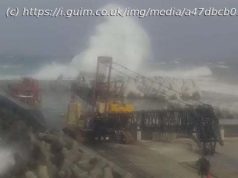 Since Daniel Hannan, a formerly obscure MEP, has emerged as the anointed intellectual of the Brexit elite, The Staggers is charting his ascendancy…
Since Daniel Hannan, a formerly obscure MEP, has emerged as the anointed intellectual of the Brexit elite, The Staggers is charting his ascendancy…
People out there in the big wide world are often helpful enough to point me towards Daniel Hannan’s latest brainfarts. He’s pretty prolific, but some of his work seems so boneheaded that I’ll get the same link sent to me by two, three, or, on one occasion, five different people.
This week it was this particular tweet – a retweet from last September; it’s all repeats on the internet these days – that everyone seemed keen to point me towards.
It’s like Ayn Rand has been reincarnated in the form of 15 year old hoping to study PPE at Oxford, isn’t it? That tweet suggests a world view so comfortingly simple that nobody actually needs money, and if you try to tax anyone anything they might decide to stop earning any in a fit of pique. (At time of writing, incidentally, Daniel Hannan has yet to resign his job as a Member of the European Parliament.)
If I get too far into this one, though, there’s a danger I’ll find myself attempting to disprove the assumptions of classical economics through the medium of sarcasm, and while I’m not shy about my own abilities to bullshit, I think that may be a bit beyond me. So instead I’m just going to leave it there for everyone to marvel at while we talk about flags.
Daniel Hannan’s header has been annoying me for months now, because it clearly takes place in a parallel universe in which the Anglosphere is a real thing rather than just the masturbatory fantasies of a certain type of free market ideologue. It combines the flags of the UK, US, Australia, Canada and New Zealand, into a single red, white and blue monstrosity: the fact that one of Britain’s best known Eurosceptics uses this as his banner pic implies, at least to me, that he thinks this is what we should have instead of the EU.
At first glance, the assumption here seems to be that Britain’s natural allies are all the other countries who speak English. Except it clearly isn’t that, because a lot of other countries also speak English – Ireland, India, South Africa, to name but three – yet are mysteriously missing from the flag.
A better definition might be that it’s the bits of the British Empire where our forefathers planted their own colonies and attempted to wipe out the natives, rather than simply lording it over them through a combination of divide-and-rule and Maxim guns. More charitably, it’s the places that have a slightly misty-eyed relationship to the same stuff – free markets, Magna Carta, the notion that Britain invented freedom – that Dan himself does.
The notion of the Anglosphere is not entirely without foundation: these five countries constitute the Five Eyes intelligence alliance, which implies a certain degree of closeness, and there’s a fair amount of military co-operation too. In the event of a nuclear holocaust, indeed, one of the instructions British prime ministers can leave for their nuclear subs is, basically, “You are now Australian. »
But nonetheless oh my god, mate, are you actually high? The Anglosphere is not a political unit – outside the world of George Smiley and GI JOE, it might as well not exist – and the idea of a US that is increasingly a) diverse but b) protectionist going anywhere near that kind of thing is just delusional. Dan is basically just saying he’d be happier if Britain’s primary allies were countries which we founded, which speak English, and which contain depressingly high concentrations of people who agree with him.
I was going to end with a crack about how the Anglosphere flag was such a work of science fiction that Dan might as well employ the flag of Star Trek ’s United Federation of Planets or, if that was too lefty, the Terran Federation from Blake’s 7 (at least everyone there speaks English). But I’ve had a better idea. There is another rainy, sea-faring kingdom in a popular work of fantasy that recently took advantage of continent-wide chaos to break away from a larger political unit. In what may or may not a foretaste of things to come, it later used it as an excuse to attack its former allies.
I am talking, of course, about the Iron Islands from Game of Thrones .
What is dead may never die.
The woman derided as “Theresa Maybe” believes she has neutralised that charge. Following her Brexit speech, Theresa May cut a far more confident figure at today’s PMQs. Jeremy Corbyn inevitably devoted all six of his questions to Europe but failed to land a definitive blow.
He began by denouncing May for “sidelining parliament” at the very moment the UK was supposedly reclaiming sovereignty (though he yesterday praised her for guaranteeing MPs would get a vote). “I t’s not so much the Iron Lady as the irony lady,” he quipped. But May, who has sometimes faltered against Corbyn, had a ready retort. The Labour leader, she noted, had denounced the government for planning to leave the single market while simultaneously seeking “access” to it. Yet “access”, she went on, was precisely what Corbyn had demanded (seemingly having confused it with full membership). « I’ve got a plan – he doesn’t have a clue,” she declared.
When Corbyn recalled May’s economic warnings during the referendum (“Does she now disagree with herself?”), the PM was able to reply: “I said if we voted to leave the EU the sky would not fall in and look at what has happened to our economic situation since we voted to leave the EU”.
Corbyn’s subsequent question on whether May would pay for single market access was less wounding than it might have been because she has consistently refused to rule out budget contributions (though yesterday emphasised that the days of “vast” payments were over).
When the Labour leader ended by rightly hailing the contribution immigrants made to public services (“The real pressure on public services comes from a government that slashed billions”), May took full opportunity of the chance to have the last word, launching a full-frontal attack on his leadership and a defence of hers.






